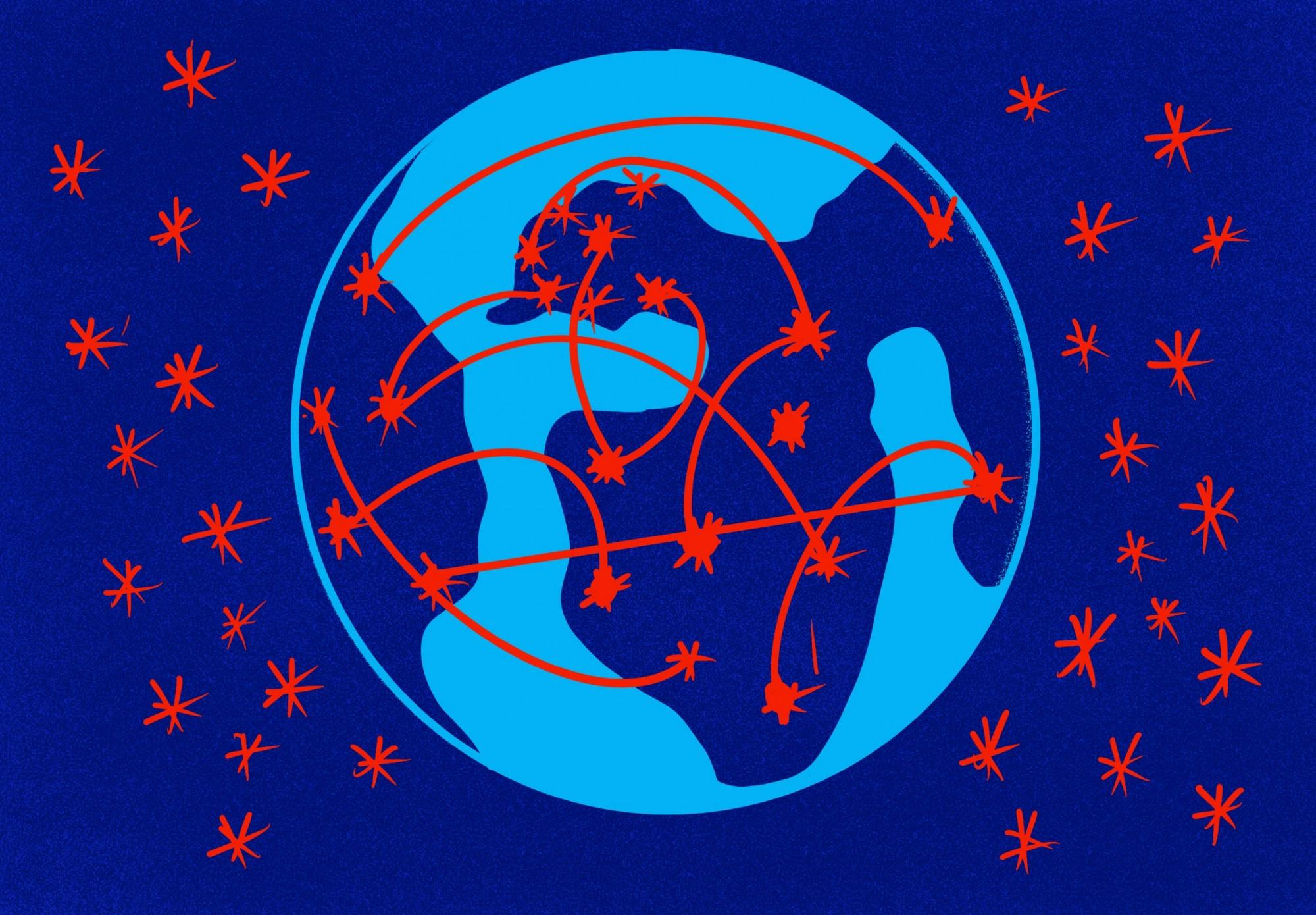It was going to be a normal Christmas. My family had plans to spend the holiday in New Hampshire with extended family, which — despite the surge of the omicron variant across the country — seemed reasonable enough with the right precautions. Snow resting delicately on the trees, frozen ponds ripe for skating, picturesque mountains begging for skiers to carve down their slopes — Christmas in New Hampshire is beautiful. I couldn’t wait.
And then, within a day of our arrival, my father tested positive for COVID-19. Panic ensued as I scrambled to get a rapid test — and find a space to distance myself once it read negative. It was shocking, particularly after a fall term when COVID-19 seemed to take a backseat to normal college life. Holiday plans were canceled. Family traditions — like opening presents underneath the tree — had to be pushed back to when we could all reunite. COVID-19 had reared its nasty head once more.
But while it hurt to miss out on the holiday, we knew we were lucky that everyone was relatively healthy. Somehow I had managed to escape contracting the virus after an eight-hour long drive with my father, and despite the loneliness my father had to endure while spending the holiday with just the company of our corgi, we were all alive and in good spirits.
Just this last week, the United States is reporting the highest seven-day average of new coronavirus infections since the pandemic began. It seems like everyone knows someone who has recently tested positive. And over break, many students had to deal with COVID-19 interrupting long-awaited holiday plans — plans that provide a welcome respite before the challenges of the Dartmouth term.
Maya Nguyen ’24 is one of those students. She tested positive at the very end of fall term and had to spend Thanksgiving in the Sunset Motor inn in West Lebanon. Even though Dartmouth gave her the option to quarantine at home in New York City, it made more sense for her to isolate in New Hampshire to protect her family.
“It was a sad moment,” Nguyen said. “On Thanksgiving, my mom FaceTimed me in with my whole family there and she had gotten me a surprise birthday cake. She flips the camera around, like ‘look at this cake we’re so excited to have you back after your first real term of college.’ And I wasn’t there.”
Margaret Ferris ’22, who tested positive for COVID-19 on Dec. 23, had to spend Christmas in isolation and called it a “wacky experience.”
“There’s nothing like a 13-year-old brother dropping off a plate of food outside your door for Christmas dinner,” she said.
The tangible effects of COVID-19 can be difficult. But while there is the physical battle, there is also the mental shift that contracting COVID-19 can create, especially when trying to plan for the future. With the winter term beginning, it’s hard to know what the next ten weeks and onward will look like.
“Obviously, I’m a senior, so I’d like to be thinking about the future and what happens after graduation,” Ferris said. “But in terms of issues like ‘will classes be virtual? Should they be virtual?’, those are the things that I’m willing to take on an as-they-come basis because I'm tired of trying to predict it all.”
Nguyen also commented on the unpredictability of the winter.
“It almost seems inevitable that there will be a huge jump in cases during this term, so we’ll have to be willing to adapt to whatever we face,” she said. “But obviously the most important thing is that people are healthy.”
In addition, Ferris mentioned a conversation with a family friend — who deals with many COVID-19 patients as a lung radiologist — where they discussed how COVID-19 will likely never fully disappear, but will be treated similarly to the common cold.
“It reframed my idea of COVID,” Ferris said. “ I think we’ve all kind of been holding this idea that one day, COVID will go away, and that these unprecedented times will stop, but getting COVID and hearing that from my friend’s mom reframed my mindset to more ‘this is never going away, but the way we deal with it will change.’”
Duncan Caramichael ’24 usually spends Christmas with his large extended family, but had to shift his holiday plans after several members of his family tested positive before Christmas. And then, after being so cautious himself, he tested positive on Dec. 26. He said it dramatically shifted his view of the virus, particularly after a relatively safe fall term.
“[COVID-19] wasn’t a massive factor in fall term,” Carmichael said. “I think we all felt pretty safe on campus. And that is a really different feeling than coming home and realizing how contagious this new variant is and how many people have it and having that be a huge factor in social decisions.”
He also mentioned the uncertainty around returning to campus after testing positive right before the start of the new term. Carmichael said that Dartmouth’s new five-day quarantine guideline made it unclear when he would be able to get back to campus.
Although the email updates from the college helped clarify the guidelines for situations like Carmichael and Ferris experienced, it still made returning to campus difficult to navigate. The high transmissibility of omicron, even though it appears to be less physically harmful than the previous variants of COVID-19, has made the start of winter term chaotic. It’s forced students to confront the harsh, ever-changing reality of COVID-19 — and drastically shifted their attitudes toward it from the fall.




